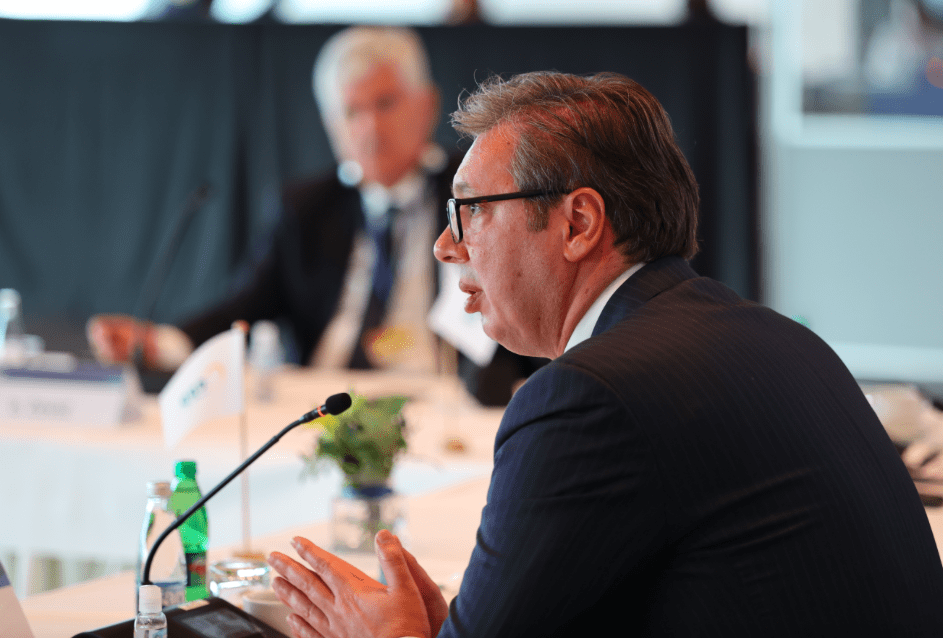
According to Serbian President Aleksandar Vučić, his country is the locus of a new proxy war between East and West. He made the remarks to Reuters on Monday, one day after a rally (protesting a gay pride march scheduled for September), took place in its Belgrade capital.
The rally, primarily composed of orthodox Christians, had been attended by thousands; they gathered despite government assurances that it would not allow the EuroPride event to take place. These gay pride marches, the largest in Europe, are held in a different capital each year.
It would be the first time EuroPride had been organized in a more conservative-minded, southeastern Europe.
In his Belgrade office, Vučić told Reuters that he was convinced that in Serbia a proxy conflict was taking place. “There is one, no doubt about that, East and West,” he said.
The Serbian leader appears caught in an ever more challenging juggling act. At home, he must keep in the good graces of his conservative base, while simultaneously needing to maintain friendly relations with China (a major investor in mining and infrastructure), Russia (on which it is greatly dependent for gas), as well as a more ‘progressive,’ staunchly anti-Russian, European Union.
Serbia’s refusal to join the EU in its sanctioning of Russia after the latter’s escalation of the Ukrainian conflict has consequently marred that relationship.
To this day, the EU (which Serbia seeks to become a member of) still remains its single biggest trade partner and investor. However, Serbia can only become a member state on the condition that it recognizes Kosovo’s independence (declared in 2008), which lies to its south.
According to the Serbian constitution, Kosovo (over which it fought a war in 1998-1999) is in fact the province of Kosovo and Metohija which, while largely autonomous, is still considered part of Serbia.
Both Beijing and Moscow, as well as five EU member states (Spain, Greece, Slovakia, Cyprus, and Romania) support Serbia’s position. As reported by The European Conservative, the Kosovar prime minister declared on August 26th it would formally apply for EU membership by the end of 2022. For this to be approved, however, the European Commission, as well as all 27 member states in the Council, must be unanimous in their assent.
This drew Vučić’s ire, who warned that “the day we find out that they have officially applied for membership in an organization, our response will be much stronger than they think and will not be just a statement to the media,” adding that “we will show our teeth.”
The news came after tensions flared at the Serbia-Kosovo border in early August, in response to the Kosovar government having imposed a license-plate mandate on Serb-registered vehicles, forcing them to temporarily wear tags issued by its Pristina-based government.
An EU-brokered deal was reached last weekend, which would enable Kosovo Serbs and other citizens to travel freely between Kosovo and Serbia using their ID cards, which in turn lowered hostilities and softened rhetoric.
We have a deal.
— Josep Borrell Fontelles (@JosepBorrellF) August 27, 2022
Under the EU-facilitated Dialogue, Serbia agreed to abolish entry/exit documents for Kosovo ID holders and Kosovo agreed to not introduce them for Serbian ID holders.
(1/2)
Yet, responding to the deal, Vučić stressed it should not be interpreted “as a recognition of the unilateral declaration of independence of Kosovo.” So, while a measure of peace appears to have returned to the region, it cannot be but temporary.
Should Pristina pursue its stated aim of EU integration, and further solidify its independent course, the extent of Belgrade’s reaction is anybody’s guess.
